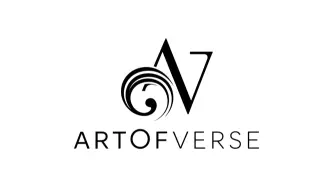The English language is rich and diverse, with regional dialects and slang giving it character and charm. British slang, in particular, has a unique flair that reflects the culture, history, and humor of the United Kingdom. If you’re planning a trip to Britain or simply want to understand your favorite British TV shows better, this British slang guide will help you decode common expressions and phrases.
What is British Slang?
Slang refers to informal, non-standard words and phrases used within specific groups or communities. British slang, often infused with wit and dry humor, has evolved over centuries and varies significantly across regions such as London, Liverpool, Manchester, and Scotland. Some terms may sound strange or even confusing to non-Brits, but they are often used daily in casual conversations.
Common British Slang Words and Their Meanings
Everyday Expressions
- Cheeky
- Meaning: Playful or mischievous, often in a harmless way.
- Example: “Let’s grab a cheeky pint after work.”
- Knackered
- Meaning: Extremely tired or exhausted.
- Example: “I’m absolutely knackered after that long shift.”
- Bloke
- Meaning: A man or guy.
- Example: “That bloke at the bar was hilarious.”
- Bird
- Meaning: A woman or girl (informal).
- Example: “Who’s that bird sitting with John?”
- Gutted
- Meaning: Deeply disappointed or upset.
- Example: “I was gutted when I missed the last train home.”
Food and Drink Slang
- Bangers and Mash
- Meaning: Sausages and mashed potatoes, a classic British dish.
- Example: “Fancy some bangers and mash for dinner?”
- Tea
- Meaning: Evening meal (especially in Northern England) or the actual drink.
- Example: “What’s for tea tonight?”
- Sarnie
- Meaning: A sandwich.
- Example: “I’m grabbing a bacon sarnie for breakfast.”
- Chippy
- Meaning: A fish and chip shop.
- Example: “Let’s stop by the chippy on the way home.”
Social Slang
- Chuffed
- Meaning: Very pleased or happy.
- Example: “I’m proper chuffed with my new job.”
- Dodgy
- Meaning: Suspicious, untrustworthy, or of poor quality.
- Example: “That car looks a bit dodgy.”
- Skint
- Meaning: Broke or without money.
- Example: “I can’t come out tonight—I’m skint.”
- Mate
- Meaning: Friend or buddy.
- Example: “Cheers, mate, for helping me move.”
- Taking the Mickey
- Meaning: Making fun of someone or joking around.
- Example: “Are you taking the mickey out of me?”
Regional British Slang
- Cockney Rhyming Slang (London)
- Apples and pears: Stairs
- Example: “I’m heading up the apples and pears.”
- Scouse (Liverpool)
- Boss: Excellent or great.
- Example: “That party was boss!”
- Geordie (Newcastle)
- Canny: Good or nice.
- Example: “She’s a canny lass.”
- Scottish Slang
- Wee: Small.
- Example: “I’ll have a wee cup of tea.”
- Welsh Slang
- Tidy: Good or impressive.
- Example: “That’s a tidy car you’ve got there.”
How to Use British Slang Confidently
- Listen and Learn:Watching British TV shows, movies, or listening to British podcasts can help you pick up the context in which slang is used.
- Practice Makes Perfect:Try incorporating a few phrases into your conversations with British friends or when interacting online.
- Know Your Audience:Some slang terms can be quite informal or even rude, so it’s essential to use them appropriately.
- Embrace Regional Differences:Different parts of the UK have distinct slang, so be open to learning and adapting as you travel or interact with people from various regions.
Conclusion
British slang is colorful, diverse, and constantly evolving, reflecting the rich culture of the UK. Whether you’re visiting Britain, watching British TV, or engaging with British friends, understanding slang will enhance your experience and make interactions more enjoyable. Keep this British slang guide handy, and soon you’ll be speaking like a true Brit—or at least faking it convincingly!

